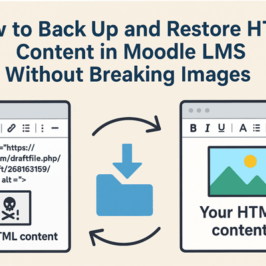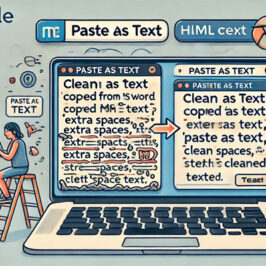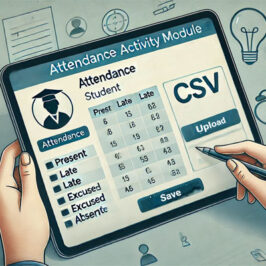What does a person who is depressed look like? Everyone knows that. Even a child can tell you. When a person is depressed, they will be slouched over, shoulders will be forward, breathing will be shallow, eyes will be looking down, and you certainly don't feel like smiling.
The folks over at the University of California, Berkeley noticed this too. They also noticed the physiology of people who are not depressed: They typically stand up straighter, shoulders are back, breathing is deeper and from the chest, eyes look upward, and if you are feeling really good, you are even smiling.
Feeling obviously affect our physiology but could the reverse be true? Could changing a person's physiology affect how they feel? A simple experiment was created to see if this was a two way street.
First, they recruited people who were officially diagnosed as being clinically depressed. The "patients" were then instructed to stand in front of a mirror and watch themselves as they grinned from ear to ear. They had to maintain this forced smile for 20 minutes per day, 7 days a week. The grin had to be so big that it created wrinkles on the sides of their eyes. No other instructions were provided nor was any medication involved in this experiment.
Interestingly, without even being told, as the patients stood in front of the mirror, they started to kick their shoulders back and breathing more fully. But even more interesting was that, at the end of the three week period, these people were no longer depressed!
People who suffered from depression practice their pattern of "being depressed" on a regular basis.
More information confirming this from TEDTalk presenter Amy Cuddy who talks about how your body language shapes who you are.
Quick Personal Experiment
Next time you are upset or feeling down, force yourself to make your silliest face for just a few seconds. While holding this pose, notice how you feel. This won't get rid of the problem but will certainly interrupt your emotional state. Whether you allow yourself to remain in this new state or choose to revert back to your previous state will be up to you.
It turns out that you cannot make your silliest face without also affecting how you are feeling in that moment. Combine this with the well-known fact that it takes 21 days for your mind to make a new habit permanent and you have a powerful treatment for depression that is not only completely drug free but way more effective.
The changes described above occur as a result of simple changes in our physiology - the way we use our body to create emotion.
Just For Fun
Using a smartphone or digital camera, take a series of at least 10 or 20 self-portraits of yourself making different silly faces. At the end of your photo session, notice how you feel. The cool thing about this is that just reviewing the pictures will often be enough to change your state. If you share them with others, it can also change their state too. Get your family and friends involved can be lots of fun. Since I first started, I have built a collection of over 200 great shots that bring me to a different state each time I look at them. How many great opportunities for personal shifts do you think this experiment potentially includes?
List of Emotions
To help you get started and practice your ability to change your mental and emotional state whenever you want to, here is a list of poses that you can use with the above photo experiment.
- Accepting
- Admiration
- Adorable
- Adoring
- Aggressive
- Amazed
- Amazing
- Angry
- Annoyed
- Anticipating
- Apprehensive
- Ashamed
- Asleep
- Astonished
- Attractive
- Bashful
- Beautiful
- Blue
- Bored
- Bouncy
- Bratty
- Brave
- Brilliant
- Busy
- Carefree
- Cautious
- Certain
- Cheerful
- Competitive
- Concerned
- Confident
- Confused
- Contempt
- Crazy
- Creative
- Creepy
- Curious
- Dangerous
- Defective
- Defiant
- Delicious
- Depressed
- Desirable
- Despair
- Determined
- Devastated
- Dirty
- Disappointed
- Disapproval
- Disapproving
- Discouraged
- Disgusted
- Disorganized
- Distracted
- Ditzy
- Dizzy
- Dorky
- Doubtful
- Down
- Dreamy
- Drunk
- Eager
- Ecstasy
- Elated
- Embarrassed
- Emotional
- Emotionless
- Empathetic
- Energetic
- Engaged
- Enlightened
- Erotic
- Excited
- Extroverted
- Fabulous
- Fearful
- Feeble
- Feminine
- Fierce
- Flirty
- Fragile
- Friendly
- Fulfilled
- Funny
- Furious
- Good
- Gorgeous
- Greedy
- Grief
- Grouchy/Grumpy
- Happy
- Hilarious
- Hopeful
- Humble
- Hungry
- In Awe
- In Control
- In Love
- Independent
- Indifferent
- Ingenious
- Ingenious
- Inquisitive
- Insane
- Insightful
- Inspired
- Interested
- Introverted
- Irritated
- Jealous
- Jolly
- Joy
- Liberated
- Like a Child
- Like a Failure
- Like a Zombie
- Like an Adult
- Lionhearted
- Loathing
- Loved
- Masculine
- Messed up
- Miserable
- Natural
- Naughty
- Nervous
- Noble
- On top of the world
- Optimistic
- Pensive
- Perfect
- Pissed off
- Poor
- Powerful
- Proud
- Puzzled
- Rage
- Regal
- Regretful
- Rejected
- Relaxed
- Remorse
- Resentful
- Rested
- Rich
- Sad
- Safe
- Sarcastic
- Scared
- Seductive
- Serenity
- Sexy
- Shining
- Shy
- Sick
- Silly
- Sleepy
- Sneaky
- Snuggly
- Soft
- Sore
- Sour
- Sparkling
- Stressed
- Submissive
- Surprised
- Talented
- Terrified
- Thankful
- Thoughtful
- Tired
- Trusted
- Vigilant
- Vulnerable
- Weak
- Wealthy
- Weird
- Welcoming
- Wicked
- Wise






